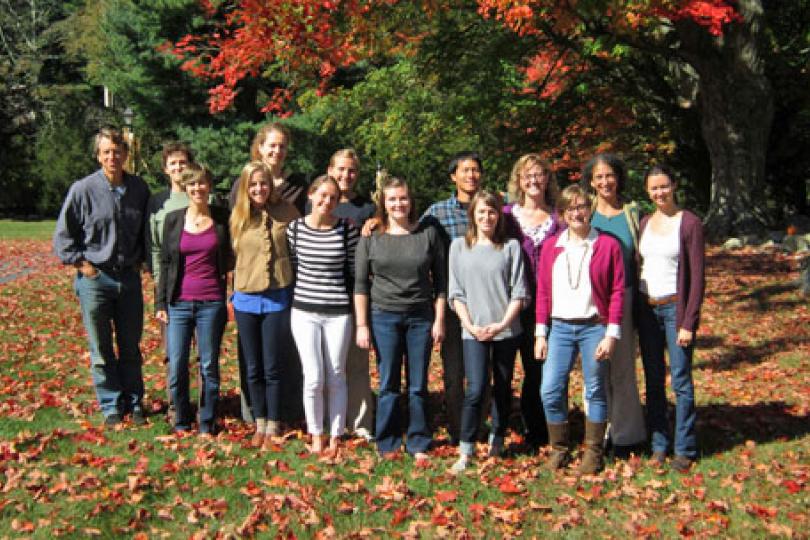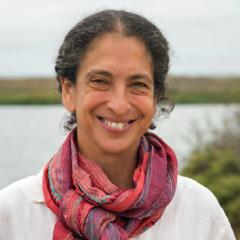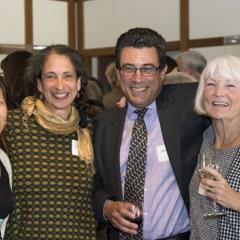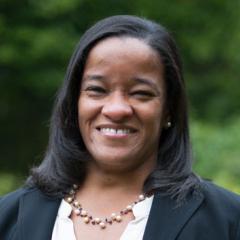Switzer Fall Retreats Focus on Communicating with Policymakers
The annual fall Switzer Fellowship retreats are a required activity for new Fellows and also a time to welcome new Fellows into the broader Switzer Fellowship Network community. This year, with 22 new Fellows and several alumni participating in programs, we had a stellar turnout at both retreats in California (agenda) and New England (agenda).
As in past years, we have engaged with COMPASS to run our communications training. This year, we tweaked the program with COMPASS to train for communicating with policymakers. We were fortunate to have several policy leaders and staffers at both retreats to share their day-to-day work environments, tips for effectively reaching lawmakers and their staff. These policymakers also participated in role-play scenarios so that everyone could practice.
In California we had:
- Mark Nechodom, Director, California Department of Conservation
- Annabelle Kleist, California Science & Policy Fellow, Representative Brian Nestande's office
- 1995 Switzer Fellow John Andrew, Assistant Deputy Director, California Department of Water Resources
- Guillermo Rodriguez, Policy & Communications Director, San Francisco Department of the Environment.
In New England we had:
- Senator Ben Downing, Pittsfield, MA
- Bob Ross, Chief Legal Counsel and Policy Advisor to Massachusetts Senate President Therese Murray
- Mark Sylvia, Commissioner, Massachusetts Department of Energy Resources
- 2001 Switzer Fellow Carol Tucker, Emergency Planning and Response Branch Chief, U.S. EPA New England
The special role of scientists and experts is particularly important since policymakers may not have access to experts or might be getting conflicting information. Being clear about your message is crucial. These skills can apply whether you are meeting with a lawmaker, an agency head or a legislative staff person. COMPASS founder Dr. Jane Lubchenco reminds us that scientists and other experts have an obligation to reach into the public realm in her 1998 article Entering the Century of the Environment: A New Social Contract for Science. Although this article has been around a while, it still is a good reminder for all of us about our responsibility to serve public interests in our work.
Among the take home lessons were: be adaptable since you might not end up speaking with whom you intended, understand your audience, and adapt your message so that it resonates with their interests. Brevity is important, especially in communicating why a policy maker should care about your issue, and be sure to offer yourself as a resource, not just an advocate with a single point of view.
In addition to the training, we had “flash talks”, brief five-minute presentations about Fellows’ work with time for feedback, and campfire time.
Sunday programs were focused on Fellows from prior years sharing their professional career experience, small group discussions and more. We hope to have the Sunday program evolve to allow for greater involvement of Fellowship alums, so your ideas are welcome.
Lastly, in California we were fortunate to have Dr. Tyrone Hayes speak not only about his work on effects of endocrine-disrupting pesticides on aquatic organisms like frogs, but the culture of responsibility as a scientist to stand on one’s findings regardless of economic interests that may want to suppress or discredit those findings (see Forbes article on recent controversy). He was truly inspirational as a biologist, mentor and scientist-advocate for addressing environmental health.
We are always open to Fellows to suggest program ideas and we will be holding a spring retreat training this year as well, announcements will be forthcoming.



